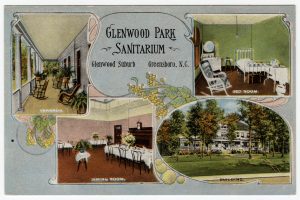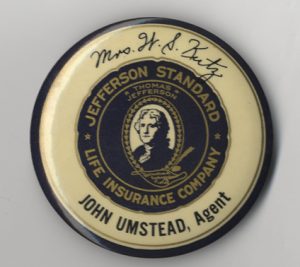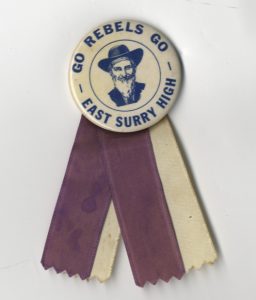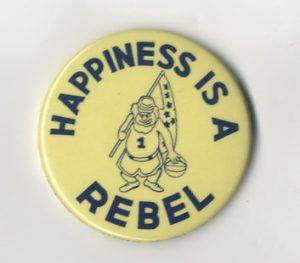Month: May 2011
Death came suddenly to Muppets creator
On this day in 1990: Muppets creator Jim Henson, feeling under the weather, cuts short a Mother’s Day visit to Ahoskie to return to New York City.
Three days later he will die of a fast-spreading form of bacterial pneumonia.
Henson, 53, often visited Ahoskie, where his mother, Barbara Henson, had retired in the early 1980s.
Can’t beat moonshiners? Then join ’em!
“In North Carolina, the ‘Moonshine Capital of the World’ (3,846 stills seized in 1954), state officials have inaugurated a shrewd new strategy against moonshiners.
“On the shelves of state liquor stores there has appeared a civilized but untamed 100-proof corn liquor respectably labeled ‘White Lightning — Clear as the Mountain Dew’ and respectably distilled on order by a subsidiary of the Brown-Forman Distillers Corp. in Louisville. The North Carolina Board of Alcoholic Control had decided it would stop trying to wean moonshine guzzlers, and would offer them a better product.
“White Lightning is produced from a mash of 85 percent corn. 15 percent malt — no rats, snakes or lye. It is aged less than 30 days, and then the aging process is stopped by storing it in uncharred, paraffin-lined barrels. At $4.40 a quart, it costs less than most aged amber whiskies but slightly more than moonshine ($3.50 to $4 a quart). North Carolinians snapped up the first consignment. ‘Man,’ said one satisfied customer last week, ‘that’s just like I was raised on.’ ”
— From Time magazine, July 25, 1955
The Brown-Forman version of moonshine seems no longer available. In 2005, however, Piedmont Distillers in Madison introduced Catdaddy Carolina Moonshine, and it has since added Junior Johnson’s old-family-recipe Midnight Moon.
“Special Attention is Given to the Use of Electricity”
From the Durwood Barbour Collection of North Carolina Postcards
“Special attention is given to the use of electricity. Twenty years’ experience has proven it invaluable in cases of nervous prostration, incipient paralysis, insomnia, the opium and whiskey habits and those nervous affections due to uterine or ovarian disorders.”
-Promotional copy for Glenwood Park Sanitarium
“In 1907, Telfair Sanitarium (later becoming Glenwood Park Sanitarium in 1918) was moved from Asheville, North Carolina to 1305 Glenwood Avenue, overlooking Glenwood Park (now Morris Farlow Park). This park was once privately owned, but was conveyed to the City to pay for the paving of Lexington Avenue. The sanitarium structure was razed around 1960 and a parking lot now occupies this site.”
Glenwood Neighborhood Plan, Greater Glenwood Neighborhood Association, 2008.
‘Cold Mountain’: Feminism trumps realism
” ‘Cold Mountain’ can best be understood as a feminist antiwar film that turns almost every Lost Cause convention on its head. In the process, it distorts history at least as much as ‘Gods and Generals’… a film celebratory of Confederates at war….
“Virtually all white southern women in ‘Cold Mountain’ are either indifferent or deeply opposed to the war. This interpretation fits a modern sensibility, especially prevalent in academia…. Melanie Wilkes [Scarlett O’Hara’s sister-in-law] and her ilk would find few compatriots among their North Carolina sisters on Cold Mountain….
“But the large majority of white southern women — especially slaveholding women like Ada Monroe — resolutely supported the Confederate nation until very late in the conflict.”
— From “Causes Won, Lost and Forgotten: How Hollywood and Popular Art Shape What We Know about the Civil War” (2008) by Gary W. Gallagher
Link dump still waiting for its honorary degree
— He says soda, she says pop — can this marriage be saved?
— In praise of street preachers.
— Can any N.C. newspaper name top the Yadkin Ripple? Well, maybe.
— As war encroaches, Wilmington goes a little crazy.
— Is it just me, or are UNC degrees always popping up in unexpected bios?
A legislator’s lagniappe for life insurance
In addition to being a Chapel Hill insurance agent, John Umstead was the brother of Gov. William Umstead, the UNC roommate of Frank Porter Graham and, as a legislator, the impassioned reformer of the state’s mental health hospitals.
He seems to have given this paperweight-mirror to policyholders such as Mrs. W. S. Kutz. Insurance mirrors were a popular giveaway for several decades, but the signature is an uncommon device — likely printed on the stock design before it was covered in celluloid.
No wonder Chuck Berry ‘bypassed Rock Hill’
On this day in 1961: The “Freedom Riders,” headed from Washington to Jackson, Miss., to challenge the South’s segregated bus facilities, incur their first arrest during an overnight stop in Charlotte.
Joe Perkins, a 27-year-old New Yorker, refuses to leave after being denied a shoeshine in the bus station’s white-only barbershop and is jailed for trespassing.
“We had expected this sort of thing in the Deep South,” says James Farmer, executive director of the Congress on Racial Equality, “but not in Charlotte.”
The Freedom Riders will experience much worse treatment, starting with beatings in Rock Hill, S.C., and ending with bread-and-water imprisonment in Mississippi. Their mission, however, not only brings the bus system into compliance with the law but also arouses widespread public sympathy and paves the way for more civil rights workers to come South.
Footnote: Although I’ve never seen it confirmed, Chuck Berry apparently was alluding to the Freedom Ride when the “poor boy” protagonist of his “Promised Land” (1964) “stopped in Charlotte, but bypassed Rock Hill.” Berry wasn’t exactly Woody Guthrie, of course — he wrote the lyrics with the help of a prison atlas while serving time for a Mann Act conviction.
Footnote footnote: Elvis’ 1974 cover of “Promised Land,” which 23 years later resurfaced prominently in the “Men in Black” soundtrack, ” omits mention of Charlotte, Rock Hill and Georgia — the whole second stanza.
War’s over, schools tell Rebel mascots
To an alumnus of a school that only recently gave up its own retro mascot, these pinbacks from the collection bring back memories, if not exactly nostalgia.
Top and bottom: Cape Fear Academy, founded in 1967 in response to desegregation of New Hanover County public schools, called on imagery typical of the time.
In 2005, at the request of students, the school dropped the name Rebels in favor of Hurricanes. “Their concerns were not that they were personally offended by it,” explained Headmaster John Meehl, “but that in some public venues they felt shy about saying the mascot’s name.”
Middle: By contrast, here’s a Confederate of the “Southern gentleman” persuasion. Acknowledging its biracial student body, East Surry High School in Pilot Mountain shed Rebels in 1974. Interestingly, the old Rebel seems not nearly as defiant as the new Cardinal, who could moonlight as a phone app.
N.C. was never Eustace Tilley’s kind of place
“Slowly the conviction deepens that not even Mr. Sinclair Lewis was able to do full justice to the Babbitt type….
“In a North Carolinian city, the local committees, Rotarians, Chamber of Commerce and the like, met to decide upon a form of welcome for the visiting [New York Symphony] which would sustain the South’s reputation for cordiality. At last they hit upon the ideal plan.
“When the tired members of the orchestra tumbled from their [railroad] car, they were met by the blare of fourteen wind instruments, tortured in the dissonances of the Shriners’ Brass Band.”
— Talk of the Town item in The New Yorker, Sept. 26, 1925
The fledgling weekly took seven months to make its first mention of North Carolina, and a rave it wasn’t.






